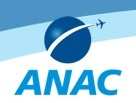Country Preparing To Host FIFA World Cup, Olympics
 In a statement released Wednesday, the International Air
Transport Association (IATA) praised Brazilian President Dilma
Rousseff's strategic focus on aviation, and urged a quick follow-up
with critical reforms to improve the industry's competitiveness.
Preparations to host the FIFA World Cup and the Olympics make
urgent progress necessary.
In a statement released Wednesday, the International Air
Transport Association (IATA) praised Brazilian President Dilma
Rousseff's strategic focus on aviation, and urged a quick follow-up
with critical reforms to improve the industry's competitiveness.
Preparations to host the FIFA World Cup and the Olympics make
urgent progress necessary.
"President Rousseff recognized the power of air transport to
drive long-term gains in the quality of life in Brazil in her
inauguration speech. Her intention to create a ministry-level Civil
Aviation Secretariat is an opportunity to achieve change. IATA is
eager to use our global expertise to play a collaborative role in
delivering on the President's expectations with a strategic plan
focused on competitiveness," said Giovanni Bisignani, IATA's
Director General and CEO. Bisignani made his remarks in a speech at
the British Chamber of Commerce in Sao Paulo, with Government
nominations for key aviation posts imminent.
Bisignani highlighted five areas for
change:
Infrastructure and Regulatory Framework: "The INFRAERO model,
which controls 94% of Brazil's airports, is broken. Terminals at 13
of the top 20 airports cannot cope with current demand. Sao Paulo,
which handles 25% of Brazil's traffic, is in a critical state with
insufficient capacity and services that do not meet global
standards. Concessions could be a way forward. But they must be
accompanied by transparent, robust and independent economic
regulation supported by effective industry consultations," said
Bisignani.
 IATA supports ANAC's continued role in overseeing airports.
"ANAC's proposed high level framework for airport regulation is
mostly in line with IATA's recommendation and ICAO's principles.
But four important changes are critical to shore-up Brazil's
competitiveness. First, ATAERO must be abolished. This 50%
surcharge on fees contravenes ICAO principles. Second, we need
greater transparency and assurances that there will be no
cross-subsidization among airports. Third, the solution to
insufficient capacity must not be peak hour pricing. Efficiency
gains and infrastructure development are the way forward. And
finally, the 70% increases for international carriers as a result
of a fee recalculation are not acceptable. Charges must come down,
not go up. If these four issues are not resolved, the benefits of
concessions will be lost," said Bisignani.
IATA supports ANAC's continued role in overseeing airports.
"ANAC's proposed high level framework for airport regulation is
mostly in line with IATA's recommendation and ICAO's principles.
But four important changes are critical to shore-up Brazil's
competitiveness. First, ATAERO must be abolished. This 50%
surcharge on fees contravenes ICAO principles. Second, we need
greater transparency and assurances that there will be no
cross-subsidization among airports. Third, the solution to
insufficient capacity must not be peak hour pricing. Efficiency
gains and infrastructure development are the way forward. And
finally, the 70% increases for international carriers as a result
of a fee recalculation are not acceptable. Charges must come down,
not go up. If these four issues are not resolved, the benefits of
concessions will be lost," said Bisignani.
Fuel Pricing: Brazil must follow-up on the 2009 elimination of
the $100 million PIS/COFINS fuel tax by addressing the Petrobras
import parity pricing policy. A recent study concluded that
Petrobras is over-pricing jet fuel by $400 million annually. "There
is no justification that Brazil's jet fuel prices should be 14%
more expensive than in the rest of the region. Brazil produces 80%
of its fuel needs from its own refineries. It makes no sense to peg
prices to the Houston market and include all theoretical costs for
importation-including transport. It is destroying the
competitiveness of Brazilian aviation," said Bisignani. Globally,
fuel averages at 29% of an airline's operating cost but for
Brazil's airlines, it is 37%.
Air Traffic Management: IATA urges Federal Government support
for DECEA's improvement efforts. "Airlines have invested in
avionics to support more efficient flying. But the infrastructure
on the ground, does not match our capabilities in the air," said
Bisignani. Specifically, IATA is encouraging the implementation of
more efficient operating procedures, known as RNAV and PBN, to
increase capacity and efficiency in both Sao Paulo and Rio.
Moreover, IATA is encouraging the Department of Airspace Control
(DECEA) to adopt a process for continuous improvement based on
analysis of performance data against agreed performance
targets.
 Environment: Aviation is united and committed to improving
fuel efficiency by 1.5% annually to 2020, capping net carbon
emissions from 2020 with carbon neutral growth, and cutting net
emission in half by 2050 (compared to 2005). Governments, through
ICAO, have agreed to find a global approach on economic measures
related to CO2 emissions. "Aviation is the only global industry
with a global plan-by industry and by governments. Brazil must
support the global approach. That means stopping plans by Guarulhos
City to impose environmental taxes that are counter-productive to
global efforts. And the Government should follow-up on the
leadership of TAM's sustainable biofuels test flight by creating
the fiscal and legal framework to support a sustainable Brazilian
biofuels industry," said Bisignani.
Environment: Aviation is united and committed to improving
fuel efficiency by 1.5% annually to 2020, capping net carbon
emissions from 2020 with carbon neutral growth, and cutting net
emission in half by 2050 (compared to 2005). Governments, through
ICAO, have agreed to find a global approach on economic measures
related to CO2 emissions. "Aviation is the only global industry
with a global plan-by industry and by governments. Brazil must
support the global approach. That means stopping plans by Guarulhos
City to impose environmental taxes that are counter-productive to
global efforts. And the Government should follow-up on the
leadership of TAM's sustainable biofuels test flight by creating
the fiscal and legal framework to support a sustainable Brazilian
biofuels industry," said Bisignani.
FIFA World Cup and the Olympics: "Brazil's airports will not be
capable of successfully hosting the FIFA World Cup or the Olympics
without major changes. Time is running out for major infrastructure
projects. We are concerned that Sao Paulo's Terminal 3 is being
planned without industry consultation. Whatever is achieved, we
will need to make the current infrastructure work much harder with
better processes. One simple solution is for all airport
stakeholders-ANAC, INFRAERO, customs, immigration, public health
and agriculture-to institutionalize cooperation. Airlines could
bring solutions to improve terminal operations and reduce
congestion, including IATA's Fast Travel standards for implementing
self-service technology, and e-freight to improve cargo handling
efficiency. These solutions exist today and can deliver major
improvements," said Bisignani. IATA also encouraged ANAC to add a
new dimension to its safety oversight by adopting the IATA
Operational Safety Audit as a requirement for all airlines
operating to Brazil.
Aviation is important to Brazil's economy. It drives travel and
tourism which supports 9.1% of GDP and over 8 million Brazilian
jobs. Aviation has grown by an impressive 10% annually since 2003.
The Brazilian domestic market is the fourth largest in the world
after the United States, China and Japan. But with 13 million
international passengers it ranks 37th, completely disproportionate
to Brazil's economy which is the world's eighth largest.
 ANN's Daily Aero-Linx (04.16.24)
ANN's Daily Aero-Linx (04.16.24) Aero-News: Quote of the Day (04.16.24)
Aero-News: Quote of the Day (04.16.24) Airborne 04.10.24: SnF24!, A50 Heritage Reveal, HeliCycle!, Montaer MC-01
Airborne 04.10.24: SnF24!, A50 Heritage Reveal, HeliCycle!, Montaer MC-01 Airborne 04.12.24: SnF24!, G100UL Is Here, Holy Micro, Plane Tags
Airborne 04.12.24: SnF24!, G100UL Is Here, Holy Micro, Plane Tags Airborne-Flight Training 04.17.24: Feds Need Controllers, Spirit Delay, Redbird
Airborne-Flight Training 04.17.24: Feds Need Controllers, Spirit Delay, Redbird





